Russia 2018 World Cup CEO defends Mutko's reputation

ZURICH - The reputation of Russia's 2018 World Cup organizing head is not at risk in the country's athletics doping scandal, the tournament CEO insisted on Thursday.
Vitaly Mutko, the Russian sports minister, was criticized last week by a World Anti-Doping Agency inquiry which claimed he must have known about a state-supported doping conspiracy.
The FIFA ethics committee said it would check if the WADA report implicated Mutko, who chairs the World Cup local organizing committee. He has also been a FIFA executive committee member since 2009.
''I don't think Mr. Mutko's reputation is in danger, again if we speak about facts, not suspicions,'' 2018 chief executive Alexey Sorokin told the Associated Press in an interview at the International Football Arena conference hosted by FIFA.
''He has been entrusted by the president to establish a public investigation into this doping matter,'' Sorokin said of Mutko, who is a longtime ally of Vladimir Putin. ''The reputation of Mr. Mutko is so intact that I don't think it could be tarnished.''
The WADA inquiry panel suggested Mutko's ministry intimidated the testing laboratory in Moscow and gave orders to tamper with samples. The Moscow lab lost its director and WADA-approved status last week.
''Even if there were no lab at all, the World Cup will still be organized in Russia and it wouldn't bring any detriment to the World Cup,'' Sorokin said, adding of the track and field scandal: ''I don't see how football is affected.''
Almost five years after FIFA chose Russia as its 2018 host, officials are weary of fighting attacks on their integrity.
''We are getting tired of offsetting constant allegations, suspicions,'' Sorokin said. ''The good things about the Russian preparations are drowned somewhere. Whether certain people want it or not, the World Cup is in Russia.''
A recent attack came from suspended FIFA President Sepp Blatter, who claimed ''leaders'' of the governing body had a pre-vote agreement to send the 2018 World Cup to Russia and 2022 edition to the United States.
Blatter blamed Michel Platini, also now suspended, for making that previously unheard of deal fail by switching sides to 2022 bidder Qatar, and taking some UEFA voters with him. ''An agreement between who?'' Sorokin said in a later conference session. ''Such an agreement in a classic sense wouldn't be possible.''
Ahead of the December 2010 vote of FIFA's executive committee, two vice presidents represented Russia's bid rivals Spain and England, another was Qatari, and three South American delegates were widely reported to support the joint Spain-Portugal bid and Qatar.
''There were people who openly told us they would prefer to go to somewhere else,'' Sorokin said.
The response to Blatter's claim last month was due to a ''climate of finger-pointing'' during widespread FIFA scandals, the Russian official suggested. ''We are living in such an atmosphere that people see in these words what they want to see,'' Sorokin said. ''I don't see anything malicious in these words.''
